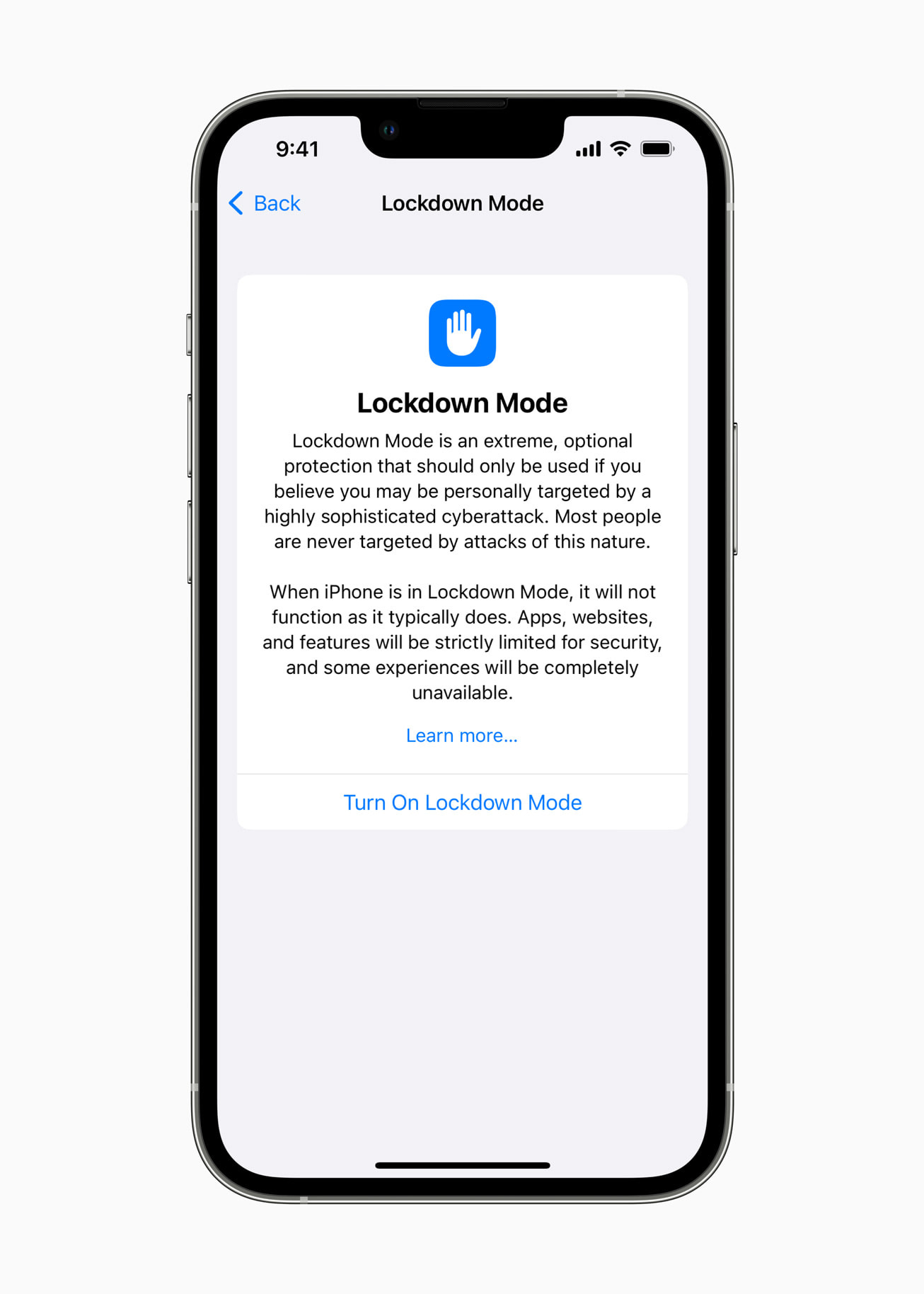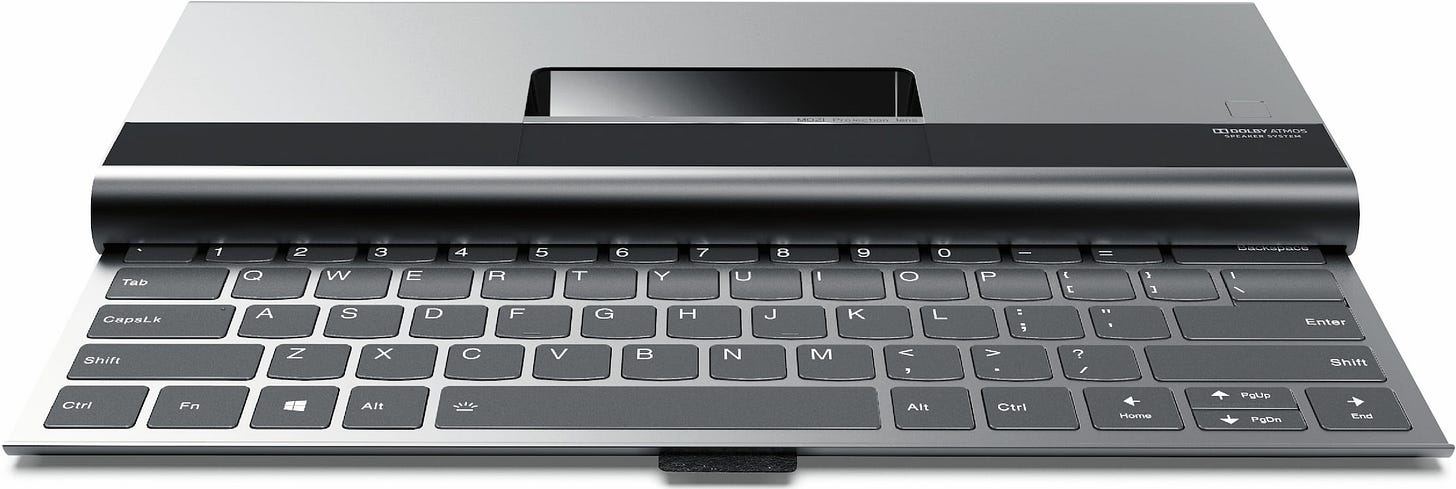Why Apple's new Lockdown Mode should be for everybody
Apple today announced a feature that secures your Apple devices from sophisticated malware attacks. But they really, really don't want you to use it.
Apple today announced a new feature called Lockdown Mode.
The feature, which Apple calls a “groundbreaking security capability,” is for “high profile” iOS 16, iPadOS 16 and macOS Ventura users.
When activated, Lockdown Mode “further hardens device defenses and strictly limits certain functionalities, sharply reducing the attack surface that potentially could be exploited by highly targeted mercenary spyware.”
Specifically:
Message attachments other than pictures are blocked.
Link previews in Messages are disabled.
Some “complex” web technologies (including just-in-time (JIT) JavaScript compilation) are disabled.
Incoming invitations and service requests, such as FaceTime calls, that come from strangers are blocked.
Connections with computers or accessories are blocked when the phone is locked.
Configuration profile installations are blocked.
Apple said Lockdown Mode is part of its intention to protect users from highly targeted state-sponsored mercenary spyware. But they really don’t want you to use it.
It’s crucial for Apple that everyday users don’t enable Lockdown Mode, because many of Apple’s features won’t work while it’s enabled. It makes Apple devices less convenient and appealing to use. Also: If lay users enabled it the tech support issues would be a burden to Apple.
For example, in Lockdown Mode, you can call somebody using FaceTime, which means they can later call you back. But only for 30 days, after which time they would be blocked from doing so. If millions are using the feature, the Genius Bar will get extra appointments by people who don’t understand why they can’t get calls.
The other problem with Lockdown Mode is the inevitable response from state-sponsored hackers in China, Russia, North Korea, Iran and elsewhere: They’ll adapt.
The game of cybersecurity is like Darwinian evolution. Security specialists close a door, and hackers evolve their methods to find another door.
If whaling attacks (a whaling attack is a phishing attack of a really big target like a CEO or someone in government) are thwarted by Lockdown Mode, cyber attackers will figure out how to get at those same targets through employees or spouses or children or others.
Also: Today’s “highly targeted mercenary spyware” is tomorrow’s script-kiddie download available on the dark web. Sophisticated malware attacks are eventually commoditized and much more broadly applied.
There will be an attacker response to Lockdown Mode, and the solution may be for Apple to encourage everyone to use it. And I think everyone should use it.
The big picture is that if everyone were using Lockdown Mode, then hackers would have a much harder time hacking — and that’s better than all the features of convenience that Lockdown Mode disables.
Mike’s List of Brilliantly Bad Ideas
1. Baby’s first computer engineering book
An author named Chase Roberts is publishing an interactive computer science book for babies. Using functioning buttons, LED lights and simple diagrams, the book aims to teach infants about logic gates and other concepts before they can walk.
2. This font censors profanity instantly!
A new typeface called Scunthorpe Sans automatically censors profanity. (The typeface itself is based on Aileron and is offered under a public domain license.)
3. New laptop uses a projector for a screen
Since the dawn of… the early 80s, PC makers have struggled to minimize the size and weight of portable, mobile and laptop computers while maximizing screen size. Now, a mysterious device from Lenovo’s labs takes a whole new approach to solving the conundrum: a projector! Called the MOZI Notebook, the prototype device has a keyboard that slides out, then slides back in held in place by magnets. The screen can be projected onto “any suitable surface,” such as a wall. Or your boss’s forehead.
Mike’s List of Shameless Self Promotions
There’s just one thing you can do about the ‘splinternet’ — adapt
Here comes the 'destination workplace'
Six things they don't tell you about digital nomad living
I was on This Week in Tech Sunday!








Nice job on This Week in Tech as always. Concise and thoughtful contributions to the discussion as always.